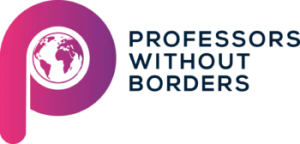- In the first book review from ThinkTank Without Borders, research associate Gabriel Inchausti examines how John Hattie in Visible Learning For Teachers, Maximizing Impact on Learning seeks to answer, what techniques can teachers use to actually improve learning and what matters most?
- Hattie identifies six categories that influence student performance: the child, (knowledge and expectations that student bring to the classroom), the home (parent expectations and aspirations for the child), the school (the climate of the classroom and the peer influences), the curriculum (its balance between deep and surface understanding), the teacher, and his/her teaching approach.
- Inchausti concludes that Visible Learning contains a strong argument for supporting evidence-based evaluation of practices in the classroom, he concludes that educators and researchers should utilize Visible Learning as a useful tool for further research.
Download the book review: Visible Learning For Teachers, Maximizing Impact on Learning by John Hattie
Copy of Press Release Press Release: Professors Without Borders Publishes First Book Review
Press Release: Professors Without Borders Publishes First Book Review
PROFESSORS WITHOUT BORDERS (PROWIBO) PRESS RELEASE 28th March, 2019 | London
In his review of Visible Learning For Teachers, Maximizing Impact on Learning by John Hattie, Gabriel Inchausti seeks to answer two ever important question in education, what techniques can teachers use to actually improve learning and what matters most? In Visible Learning Hattie reviews hundreds of meta-analyses and identifies six categories of factors that influence student behaviour. Following his identification of factors that influence student performance, Hattie investigates which factors produce the highest positive impact on student performance and concludes that although most of the interventions have a positive impact, those that relate to teachers presented the highest impact and those that relate to school, the lowest. Inchausti agrees with Hattie’s conclusion that emphasizes evidence-based evaluation of practices to improve student performance; however, he stresses that educators and researchers alike should use Visible Learning as an ambitious and useful systematization of the always expanding world of academic research in education.

Gabriel Inchausti graduated in Economics from the University of the Republic (Uruguay). Gabriel has professional specialization in corporate finance and strategy and received his Masters Degree in Behavioural Sciences at the London School of Economics. He is a professor and lecturer in topics related to Behavioral Economics in Uruguay and Brazil, and is an active researcher in the field. His research focus is in the area of education and time preferences. Moreover, Gabriel served as the Executive Officer for a major South American beef group and the General Manager in an important media group in Uruguay. Currently, he is chairman of the board of a South American software company.
For further enquiries, interviews and media, contact,
Director, Dr Caroline Varin – cvarin@prowibo.com
Richard Adams for further press enquiries radams@prowibo.com
